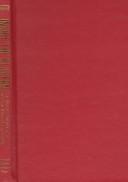| Listing 1 - 10 of 29 | << page >> |
Sort by
|
Book
ISBN: 2869787235 2869789815 Year: 2020 Publisher: Dakar, Senegal : Council for the Development of Social Science Research in Africa,
Abstract | Keywords | Export | Availability | Bookmark
 Loading...
Loading...Choose an application
- Reference Manager
- EndNote
- RefWorks (Direct export to RefWorks)
The slave trade, the conquest of the Americas and the invasion of Africa have deeply transformed the relations between Europeans and other groups. The jump from difference to superiority and racial hierarchy was so swift that it led to the moral collapse of Europe and North America. By shifting the devaluation of so-called 'inferior' beings from non-Whites to non-Aryans, Nazism committed the unforgivable crime of bringing into the heart of the European world a ferocity up to then reserved for other continents. In this book, White Ferocity: The Genocides of Non-Whites and Non-Aryans from 1492 to Date, Plumelle-Uribe investigates and demonstrates, with harrowing evidence and analyses, how Europeans justified the destruction of other peoples as unavoidable based on the officially declared belief of others being inferior.
Racism --- White supremacy movements --- Genocide --- History. --- Supremacist movements, White --- Supremacy movements, White --- White supremacist movements --- Social movements --- White nationalism --- Skinheads

ISBN: 0585038112 1469616149 1469611112 9781469611112 9781469616148 0807823287 9780807823286 0807846384 9780807846384 Year: 1997 Publisher: Chapel Hill
Abstract | Keywords | Export | Availability | Bookmark
 Loading...
Loading...Choose an application
- Reference Manager
- EndNote
- RefWorks (Direct export to RefWorks)
Religion and the Racist Right: The Origins of the Christian Identity Movement
Anglo-Israelism --- White supremacy movements --- British-Israelism --- Jews --- Lost tribes of Israel --- Supremacist movements, White --- Supremacy movements, White --- White supremacist movements --- Social movements --- White nationalism --- Skinheads --- History. --- Identity --- United States --- Race relations. --- Race question
Book
ISBN: 081394385X 0813943841 9780813943855 9780813943848 Year: 2020 Publisher: Charlottesville, Virginia : University of Virginia Press,
Abstract | Keywords | Export | Availability | Bookmark
 Loading...
Loading...Choose an application
- Reference Manager
- EndNote
- RefWorks (Direct export to RefWorks)
"This book examines the contrast between progress on emancipation and the persistence of virulent racism and white supremacist attitudes in the Civil War North. It analyzes both northern politics and the racial attitudes and assumptions that were revealed in newspapers, books, and magazines. Its central arguments are about the Democratic Party, the Republican Party, and the racism that flourished in Northern society and culture"--
Political parties --- African Americans --- White supremacy movements --- Racism --- Supremacist movements, White --- Supremacy movements, White --- White supremacist movements --- Social movements --- White nationalism --- Skinheads --- History --- Social conditions --- United States --- Politics and government --- Race relations --- History.
Book
ISBN: 0813574722 0813574730 9780813574738 9780813574721 9780813574714 9780813574707 0813574706 0813574714 Year: 2016 Publisher: New Brunswick, New Jersey Rutgers University Press
Abstract | Keywords | Export | Availability | Bookmark
 Loading...
Loading...Choose an application
- Reference Manager
- EndNote
- RefWorks (Direct export to RefWorks)
From rap to folk to punk, music has often sought to shape its listeners' political views, uniting them as a global community and inspiring them to take action. Yet the rallying potential of music can also be harnessed for sinister ends. As this groundbreaking new book reveals, white-power music has served as a key recruiting tool for neo-Nazi and racist hate groups worldwide. Reichsrock shines a light on the international white-power music industry, the fandoms it has spawned, and the virulently racist beliefs it perpetuates. Kirsten Dyck not only investigates how white-power bands and their fans have used the internet to spread their message globally, but also considers how distinctly local white-power scenes have emerged in Western Europe, Eastern Europe, Latin America, the United States, and many other sites. While exploring how white-power bands draw from a common well of nationalist, racist, and neo-Nazi ideologies, the book thus also illuminates how white-power musicians adapt their music to different locations, many of which have their own terms for defining whiteness and racial otherness. Closely tracking the online presence of white-power musicians and their fans, Dyck analyzes the virtual forums and media they use to articulate their hateful rhetoric. This book also demonstrates how this fandom has sparked spectacular violence in the real world, from bombings to mass shootings. Reichsrock thus sounds an urgent message about a global menace.
Heavy metal (Music) --- Punk rock music --- Social aspects. --- Political aspects. --- Metal (Music) --- Alternative rock music --- Punk culture --- Rock music --- Hate groups. --- Neo-Nazism. --- White supremacy movements. --- Supremacist movements, White --- Supremacy movements, White --- White supremacist movements --- Social movements --- White nationalism --- Skinheads --- Neo-Nazi groups --- Neo-Nazi movements --- Neo-Nazi parties --- Fascism --- National socialism --- Social groups

ISBN: 0585333270 9780585333274 0809322471 9780809322473 080932248X 9780809322480 Year: 1999 Publisher: Carbondale, Ill. Southern Illinois University Press
Abstract | Keywords | Export | Availability | Bookmark
 Loading...
Loading...Choose an application
- Reference Manager
- EndNote
- RefWorks (Direct export to RefWorks)
Inside the Klavern is an annotated collection of the minutes of a thriving Ku Klux Klan in La Grande, Oregon, between 1922 and 1924. The most complete set of Klan minutes ever uncovered, these documents illustrate the inner workings of a Klan chapter of more than three hundred members at a time when the national membership reached into the millions and the Invisible Empire was at the peak of its power. Through an extensive introduction and conclusion as well as brief notes previewing each installment of the minutes, David A. Horowitz places these unique documents in historical perspective.The La Grande minutes demonstrate Klan hostility to Roman Catholics, Jews, blacks, and "hyphenated" Americans. But they also explain how the chapter exercised requirements for admission, how officers were selected, and how Klansmen encountered difficulties enforcing the moral standards of their order. Because the Klan kligrapp (recording secretary) Harold R. Fosner recorded not only the official proceedings but also volunteered extemporaneous comments and gossip, readers get a genuine feeling for what it was like to attend the meetings. Through his own obvious excitement and commitment to the cause, Fosner re-creates the flavor, tone, and atmosphere of these meetings: "Tis beyond my power of expression to relate the harmony and fellowship which reigned supreme. . . . Suffice to say that these were the golden moments of our lives."His evaluation of Klan propaganda, too, is telling: "The weekly newsletter from Atlanta, Georgia, contained a little book, the official message of our emperor, one Col. William Joseph Simmons, read before the most noble band of men ever assembled and for the noblest cause in the world. To my firm belief this book is the leading masterpiece of our day and age."Horowitz concludes that "although it is tempting to judge Jazz Age Klansmen by the standards of later generations, the story provided by the minutes is a complex one--a chronicle of both compassion and complicity in cruelty, of positive social accomplishment and arbitrary and dysfunctional divisiveness."
White supremacy movements --- History --- Sources. --- Ku Klux Klan (1915- ). --- La Grande (Or.) --- Race relations. --- Social conditions. --- Supremacist movements, White --- Supremacy movements, White --- White supremacist movements --- Social movements --- White nationalism --- Skinheads --- Grande (Or.) --- City of La Grande (Or.) --- KU KLUX KLAN (1915-) --- WHITE SUPREMACY MOVEMENTS --- OREGON --- SOCIAL SCIENCE --- Ku Klux Klan (1915-) --- White Supremacy Movements --- Oregon --- Social Science --- Ku klux klan (1915-) --- Social science
Book
ISBN: 0585056897 9780585056890 1438402384 Year: 1986 Publisher: Albany State University of New York Press
Abstract | Keywords | Export | Availability | Bookmark
 Loading...
Loading...Choose an application
- Reference Manager
- EndNote
- RefWorks (Direct export to RefWorks)
Black Consciousness in South Africa provides a new perspective on black politics in South Africa. It demonstrates and assesses critically the radical character and aspirations of African resistance to white minority rule.Robert Fatton analyzes the development and radicalization of South Africa's Black Consciousness Movement from its inception in the late 1960s to its banning in 1977. He rejects the widely accepted interpretation of the Black Consciousness Movement as an exclusively cultural and racial expression of African resistance to racism. Instead Fatton argues that over the course of its existence, the Movement developed a revolutionary ideology capable of challenging the cultural and political hegemony of apartheid. The Black Consciousness Movement came to be a synthesis of class awareness and black cultural assertiveness. It represented the ethico-political weapon of an oppressed class struggling to reaffirm its humanity through active participation in the demise of a racist and capitalist system.
Blacks --- White supremacy movements --- Politics and government. --- Race identity --- Social conditions. --- History. --- South Africa --- Politics and government --- Social conditions --- Race relations. --- Black persons --- Negroes --- Ethnology --- Supremacist movements, White --- Supremacy movements, White --- White supremacist movements --- Social movements --- White nationalism --- Skinheads --- Race question --- Black people --- Africa --- History --- South africa --- Apartheid --- Social science

ISBN: 1280107480 9786610107483 0203997999 9780203997994 9781280107481 9781135932770 1135932778 9780415949224 041594922X 9781135932725 9781135932763 113593276X Year: 2004 Publisher: New York : Routledge,
Abstract | Keywords | Export | Availability | Bookmark
 Loading...
Loading...Choose an application
- Reference Manager
- EndNote
- RefWorks (Direct export to RefWorks)
At a time of heightened fears over terrorism and Islam; as frustration builds with immigration and asylum; and as millions vote for far-right political parties, Into A World Of Hate is Nick Ryan's powerful odyssey into the world of the extreme right.
Right-wing extremists. --- White supremacy movements. --- Hate groups. --- Racism. --- Bias, Racial --- Race bias --- Race prejudice --- Racial bias --- Prejudices --- Anti-racism --- Critical race theory --- Race relations --- Social groups --- Supremacist movements, White --- Supremacy movements, White --- White supremacist movements --- Social movements --- White nationalism --- Skinheads --- Far-right extremists --- Radicals
Book
ISBN: 1479827754 1479887714 Year: 2018 Publisher: New York, NY : New York University Press,
Abstract | Keywords | Export | Availability | Bookmark
 Loading...
Loading...Choose an application
- Reference Manager
- EndNote
- RefWorks (Direct export to RefWorks)
A controversial argument for reconsidering the limits of free speech Swirling in the midst of the resurgence of neo-Nazi demonstrations, hate speech, and acts of domestic terrorism are uncomfortable questions about the limits of free speech. The United States stands apart from many other countries in that citizens have the power to say virtually anything without legal repercussions. But, in the case of white supremacy, does the First Amendment demand that we defend Nazis? In Must We Defend Nazis?, legal experts Richard Delgado and Jean Stefancic argue that it should not. Updated to consider the white supremacy demonstrations and counter-protests in Charlottesville and debates about hate speech on campus and on the internet, the book offers a concise argument against total, unchecked freedom of speech. Delgado and Stefancic instead call for a system of free speech that takes into account the harms that hate speech can inflict upon disempowered, marginalized people. They examine the prevailing arguments against regulating speech, and show that they all have answers. They also show how limiting free speech would work in a legal framework and offer suggestions for activist lawyers and judges interested in approaching the hate speech controversy intelligently. As citizens are confronting free speech in contention with equal dignity, access, and respect, Must We Defend Nazis? puts aside clichés that clutter First Amendment thinking, and presents a nuanced position that recognizes the needs of our increasingly diverse society.A controversial argument for reconsidering the limits of free speech Swirling in the midst of the resurgence of neo-Nazi demonstrations, hate speech, and acts of domestic terrorism are uncomfortable questions about the limits of free speech. The United States stands apart from many other countries in that citizens have the power to say virtually anything without legal repercussions. But, in the case of white supremacy, does the First Amendment demand that we defend Nazis? In Must We Defend Nazis?, legal experts Richard Delgado and Jean Stefancic argue that it should not. Updated to consider the white supremacy demonstrations and counter-protests in Charlottesville and debates about hate speech on campus and on the internet, the book offers a concise argument against total, unchecked freedom of speech. Delgado and Stefancic instead call for a system of free speech that takes into account the harms that hate speech can inflict upon disempowered, marginalized people. They examine the prevailing arguments against regulating speech, and show that they all have answers. They also show how limiting free speech would work in a legal framework and offer suggestions for activist lawyers and judges interested in approaching the hate speech controversy intelligently. As citizens are confronting free speech in contention with equal dignity, access, and respect, Must We Defend Nazis? puts aside clichés that clutter First Amendment thinking, and presents a nuanced position that recognizes the needs of our increasingly diverse society.
White supremacy movements. --- Nazis. --- Freedom of speech --- Hate speech --- Defamation against groups --- Group defamation --- Group libel --- Racist speech --- Speech, Hate --- Libel and slander --- National socialists --- Fascists --- Socialists --- National socialism --- Neo-Nazis --- Supremacist movements, White --- Supremacy movements, White --- White supremacist movements --- Social movements --- White nationalism --- Skinheads --- Law and legislation --- United States.
Book
ISBN: 0197537626 0197537634 0197537642 9780197537633 9780197537619 0197537618 Year: 2022 Publisher: New York Oxford University Press
Abstract | Keywords | Export | Availability | Bookmark
 Loading...
Loading...Choose an application
- Reference Manager
- EndNote
- RefWorks (Direct export to RefWorks)
Spreading Hate examines the evolution of the white power movement around the world, explaining its appeal and the threat it poses as well as many failures.The modern white power movement is now a global, transnational phenomenon. In this sweeping, authoritative account, Daniel Byman traces the key moments in the white power movement's evolution in the United States and around the world and then details its many facets today. Using a wide range of sources, Byman explodes several myths about white power terrorism and exposes dangerous gaps in current policies.For almost two decades since 9/11, white supremacist terrorism has been relegated to a secondary concern in the US and Europe despite the fact that it was clearly metastasizing. This neglect has led to shocking episodes of violence from New Zealand to Norway to South Carolina and has eroded faith in Western democratic institutions. Because white power terrorists' grievances echo mainstream debates and their violence often exacerbates polarization, their political impact can be inordinately high even if the body count is low. As Byman stresses, they are not a hide-bound movement seeking to turn back the clock, but are dynamic, drawing on ideas from around the world and exploiting the most cutting-edge technologies, especially social media. White power terrorists, however, have many weaknesses. They are divided, with poor leadership, and often attract the incompetent and the criminal as well as the dangerous and deluded. If governments act decisively and treat white power terrorism with the same urgency they use to manage jihadist violence, then the threat can be reduced. This will require aggressive law enforcement, international intelligence cooperation, crackdowns by technology companies, and other forceful steps. Considering policy solutions as well as synthesizing a vast body of scholarly research, Spreading Hate will be essential reading for anyone worried about this an increasingly networked movement that threatens to grow more dangerous in the years to come.
White supremacy movements --- Terrorism --- Hate crimes --- History. --- Supremacist movements, White --- Supremacy movements, White --- White supremacist movements --- Social movements --- White nationalism --- Skinheads --- Bias crimes --- Bias-related crimes --- Hate-motivated crimes --- Hate offenses --- Crime --- Hate crimes. --- Prevention. --- Prevention --- White supremacy movements - History --- Terrorism - History --- Hate crimes - History --- Criminology. Victimology --- Polemology

ISBN: 0521240964 0521270618 0511471041 0511867239 Year: 1982 Publisher: Cambridge : Cambridge University Press,
Abstract | Keywords | Export | Availability | Bookmark
 Loading...
Loading...Choose an application
- Reference Manager
- EndNote
- RefWorks (Direct export to RefWorks)
An original and exciting work of comparative history, this book analyses the origins of segregation as a specific stage in the evolution of white supremacy in South Africa and the American South. Unlike scholars who have attributed twentieth-century patterns of race relations to the continuation of earlier social norms and attitudes, Cell understands segregation as a distinct system and ideology of race and class division, closely associated with urbanisation, industrialisation, and modern processes of state and party formation. Originally advocated by moderates and liberals, rather than by racist fanatic with whom it later came to be identified, segregation became comparatively sophisticated, flexible, and absorptive. In its ambiguities even advocates of black power could sometimes find a basis for collaboration.
Apartheid --- Segregation --- African Americans --- White supremacy movements --- South Africa --- Southern States --- Race relations. --- Arts and Humanities --- History --- Black people --- Blacks --- Supremacist movements, White --- Supremacy movements, White --- White supremacist movements --- Social movements --- White nationalism --- Skinheads --- Afro-Americans --- Black Americans --- Colored people (United States) --- Negroes --- Africans --- Ethnology --- Desegregation --- Race discrimination --- Minorities --- Race question
| Listing 1 - 10 of 29 | << page >> |
Sort by
|

 Search
Search Feedback
Feedback About
About Help
Help News
News